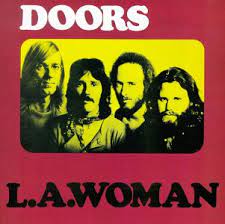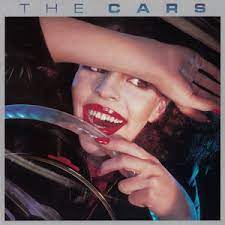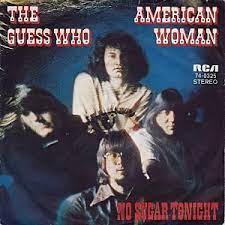Tutorial Pricing: $3.25ea OR any 10 for $10
(use code "Any10410" at checkout)
Paid Requests for $25ea
(comes with any 8 freebies -> so 9 for $25)
100's Of Free Demos & Chord Sheets
Bee Gees Most Popular Songs
On Acoustic Guitar

Welcome to my Bee Gees most popular songs where there are eight lessons on this page and you can see how I play these Bee Gees numbers on the acoustic.
The Bee Gees were one of the most successful pop music groups of all time. With their tight harmonies, distinctive falsetto vocals, and infectious disco beats, the group captured the hearts of millions of fans around the world. Over the course of their career, the Bee Gees sold over 220 million records and created some of the most memorable hits of the 1970s. From "Stayin' Alive" to "Night Fever," their music remains a beloved part of pop culture to this day.
Below are free demos and pdf chord sheets on each song. I'll be including Bee Gees album covers to indicate the origin of each song.
Jump links to quickly access Bee Gees songs sections.
Who Are The Bee Gees?
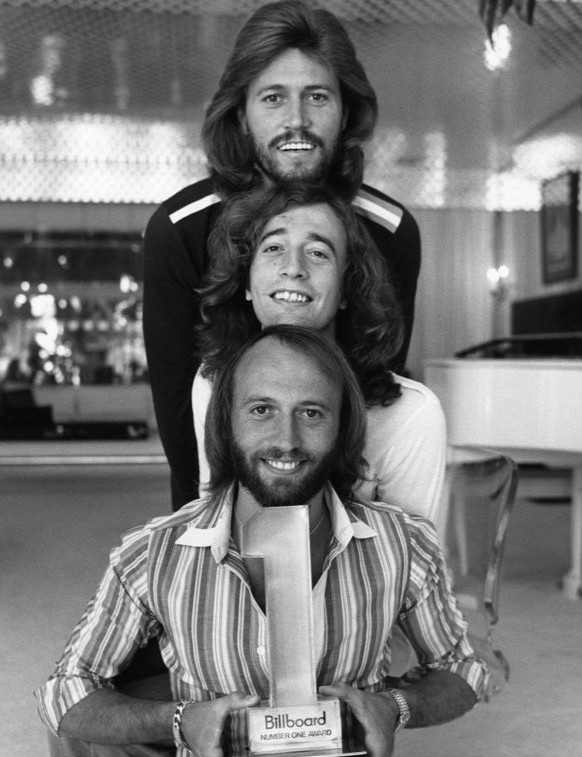
The Bee Gees, short for the Brothers Gibb, were a British-Australian pop and rock group formed in Redcliffe, Queensland, Australia, consisting of brothers Barry, Robin, and Maurice Gibb. The trio gained international fame for their close harmonies, distinctive falsetto vocals, and prolific songwriting.
The Bee Gees' career spanned several decades, and they achieved significant success in various musical genres, including pop, rock, and disco. Some of their most well-known songs include "Stayin' Alive," "How Deep Is Your Love," "Night Fever," and "More Than a Woman," which were featured in the soundtrack of the iconic disco film "Saturday Night Fever."
The Bee Gees left a lasting impact on the music industry, earning multiple Grammy Awards and becoming one of the best-selling music artists of all time. Their influence extends beyond their own performances, as they also wrote hit songs for other artists.
Bee Gees Most Popular Songs
Demos, Lyrics, Chords, Tutorials
1. Alone
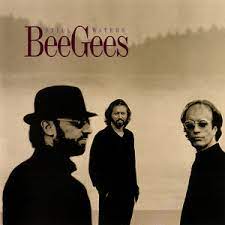
Alone by The Bee Gees is a poignant ballad that emerged as a standout track from their 1997 album, "Still Waters." Co-written by all three brothers—Barry, Robin, and Maurice Gibb—the song reflects their enduring talent for crafting emotionally charged melodies.
Released as a single in 1997, "Alone" achieved notable commercial success, reaching the top 10 in several countries. The lyrics delve into the aftermath of a concluded relationship, capturing the essence of heartache and introspection.
The emotional depth is complemented by the brothers' harmonious vocals, creating a moving musical experience. The official music video for "Alone" adds a visual dimension to the song, enhancing its storytelling and emotional impact.
As The Bee Gees continued to evolve their sound, "Alone" stands as a testament to their ability to craft timeless ballads that resonate with audiences on a deeply personal level.
Jump To Top
2. And The Sun Will Shine
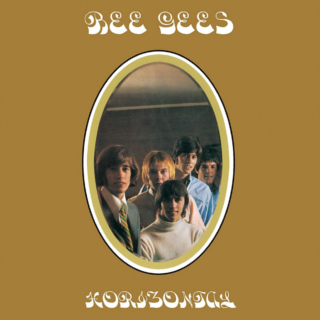
And The Sun Will Shine hails from the bands 4th album entitled Horizontal released i 1968. This track was released as a single but only in France where it reached #66 on the charts. Robin Gibb sang lead on the track and nailed the vocals in one take, where he also made up some of the lyrics on the spot.
Jump To Top
3. Holiday
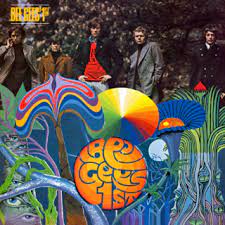
Holiday a classic from The Bee Gees, graced their 1967 album "Bee Gees' 1st" and played a pivotal role in establishing their early reputation as a formidable pop group.
Co-written by Barry Gibb and Robin Gibb, the track was not only a part of their album but also released as a single in 1967. "Holiday" stands out for its upbeat tempo and infectious energy, capturing the essence of the joys of vacation and the escape from the daily grind.
The song's catchy melody and harmonious vocals exemplify The Bee Gees' ability to create accessible and engaging pop tunes. As one of their early hits, "Holiday" contributed significantly to the band's rise to prominence.
An official music video, produced for the song, adds a visual dimension, providing a delightful accompaniment to the cheerful spirit of the track. "Holiday" remains a testament to The Bee Gees' enduring legacy as pop music maestros with a talent for crafting tunes that stand the test of time.
Jump To Top Of Bee Gees Most Popular Songs
4. How Can You Mend A Broken Heart
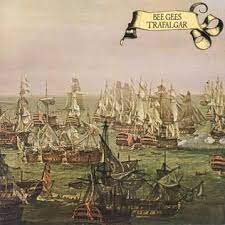
How Can You Mend A Broken Heart a soulful ballad by The Bee Gees, emerged as a standout track from their 1971 album "Trafalgar." Co-written by the talented brothers Barry Gibb and Robin Gibb, the song holds a special place in the band's repertoire.
Released as a single in 1971, it swiftly ascended to the top of charts in several countries, solidifying its status as one of The Bee Gees' biggest hits.
The song's timeless appeal lies in its poignant exploration of heartbreak and the challenging journey of moving on. Barry Gibb's emotive vocals, coupled with the poignant lyrics, create a powerful and relatable musical experience.
Despite the absence of an official music video, "How Can You Mend A Broken Heart" remains an enduring testament to The Bee Gees' ability to capture raw emotion through their music, leaving an indelible mark on the landscape of soulful ballads.
Jump To Top
5. If Only I Had My Mind On Something Else
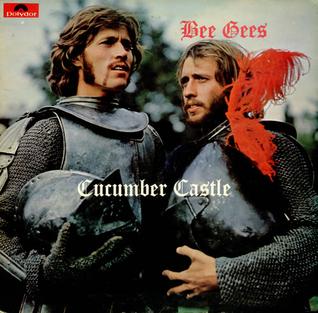
If Only I Had My Mind On Something Else is a track from the 1969 album Cucumber Castle. Robin Gibb has left the group during this time and the drummer playing on the album was fired.
In the US the song never did so well as a single following there hit "Don't Forget to Remember" peaking at #91 on the charts.
The song contains just four chords and they are D, Dmaj7, D6 and an Em while playing a down down up down down up rhythm pattern in standard tuning.
Jump To Top
6. New York Mining Disaster 1941
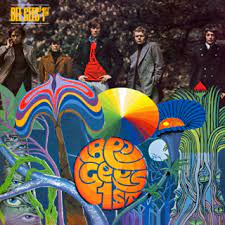
New York Mining Disaster 1941 is a compelling narrative ballad by The Bee Gees, originates from their 1967 album "Bee Gees' 1st." Co-written by the skilled duo Barry and Robin Gibb, the track not only found a home in their album but was also released as a single in 1967.
The song's genesis lies in a newspaper article detailing a real mining disaster in New York in 1941, inspiring The Bee Gees to craft a poignant musical retelling of the tragic event. The narrative unfolds through the eyes of those affected by the disaster, capturing the human stories and emotions connected to the incident.
Despite its somber theme, the song's melodic beauty and harmonious vocals showcase The Bee Gees' ability to blend storytelling with musical artistry. Although no official music video accompanies the track, "New York Mining Disaster 1941" remains a powerful testament to the band's early talent for creating evocative and memorable compositions.
Jump To Top Of Bee Gees Most Popular Songs
7. Stayin Alive
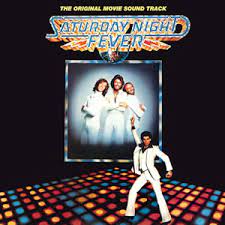
Staying Alive is the quintessential disco hit by The Bee Gees, found its rhythm in the soundtrack of the iconic movie "Saturday Night Fever" released in 1977. Co-written by all three brothers—Barry, Robin, and Maurice Gibb—the song became a cultural phenomenon when it was released as a single the same year.
With its infectious beat and catchy lyrics, "Staying Alive" resonated with audiences worldwide, becoming a commercial juggernaut. The song's lyrics delve into the struggles of a working-class man striving to navigate life's challenges, a theme that struck a chord with many.
Its monumental success was further propelled by its prominent
placement in the film "Saturday Night Fever," solidifying its
association with the disco era. Accompanied by an official music video,
"Staying Alive" stands as a timeless emblem of The Bee Gees' musical
prowess and their significant contribution to the soundtrack of an era.
Jump To Top
8. To Love Somebody
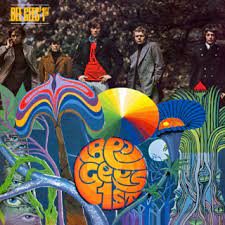
To Love Somebody stands as a heartfelt anthem written by the prolific duo Barry and Robin Gibb, representing the Bee Gees' musical prowess. Produced by Robert Stigwood, the song served as the second single from the Bee Gees' international debut album, "Bee Gees 1st," released in 1967.
Notably, the single achieved a commendable No. 17 spot in the United States and reached No. 41 in the United Kingdom. In a 2017 interview, Barry Gibb shared that, when asked to choose from his extensive songwriting repertoire, "To Love Somebody" held a special place for its "clear, emotional message."
Originally intended for Otis Redding, the song took on a poignant significance after Redding's tragic plane crash in the same year prevented him from recording it. The enduring appeal of "To Love Somebody" is further evident in its numerous cover versions by artists such as Janis Joplin, Roberta Flack, and Nina Simone, attesting to the song's enduring impact across musical genres.
Jump To Top
9. Tomorrow Tomorrow
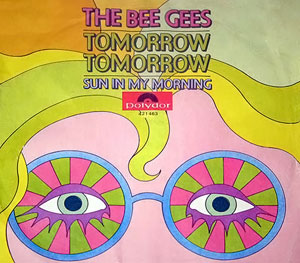
Tomorrow Tomorrow is a song penned by the Bee Gees' Barry and Maurice Gibb, marks a significant chapter in the band's history. Originally intended for Joe Cocker, it became the first single released by the Bee Gees after Robin Gibb's departure, reducing the group to a trio with Barry and Maurice Gibb and drummer Colin Petersen.
Unveiled in the United States on June 1, 1969, the single faced a modest reception, securing the 54th spot on the Billboard chart but achieving a more favorable position, reaching No. 32 on Cash Box. Despite its lukewarm reception in their native Britain, where it peaked at No. 23,
"Tomorrow Tomorrow" showcased the Bee Gees' global appeal with top-ten rankings in Brazil, New Zealand, and several European countries. Notably, the song claimed the chart's summit in Denmark. The rarity of its promotional video, featuring Barry, Maurice, and Colin performing in a park, adds a distinctive touch to the song's history. Released under the managerial decision of Robert Stigwood, "Tomorrow Tomorrow" remains a testament to the Bee Gees' resilience and creative evolution during a pivotal phase in their musical journey.
Jump To Top
10. Too Much Heaven
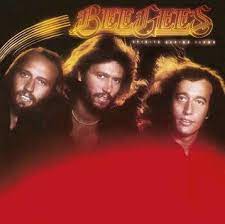
Too Much Heaven a musical jewel by the Bee Gees, graced their 1979 album "Spirits Having Flown." The song, a collaborative effort by the three brothers—Barry, Robin, and Maurice Gibb—emerged as a powerful single that resonated with audiences upon its release in 1979.
Infused with gospel influences, "Too Much Heaven" delves into the profound theme of heaven, offering a message of hope and solace. The track's ethereal melody, coupled with the harmonious vocals of the Gibb brothers, propelled it to commercial success, claiming the top spot on charts in several countries.
Despite its popularity, an official music video for the song was notably absent. "Too Much Heaven" stands as a testament to the Bee Gees' ability to blend spiritual depth with musical artistry, creating a timeless piece that continues to captivate listeners with its celestial charm.
Jump To Top Of Bee Gees Most Popular Songs
The Bee Gees may have started out as a humble pop group, but they quickly rose to become legends of the music industry. Their unique sound, tight harmonies, and catchy hooks have inspired generations of artists and music lovers around the world. Though the Bee Gees are no longer with us, their music lives on, reminding us of the power of great pop music to uplift and inspire. Whether you're a longtime fan or discovering the Bee Gees for the first time, their music is sure to bring joy and nostalgia to your heart.
Thanks for dropping by my Bee Gees most popular songs page and I hope the info here was helpful.
If you liked this Bee Gees most popular songs page you might also like ... (click images)
Acoustic Versions Of Rock Songs
